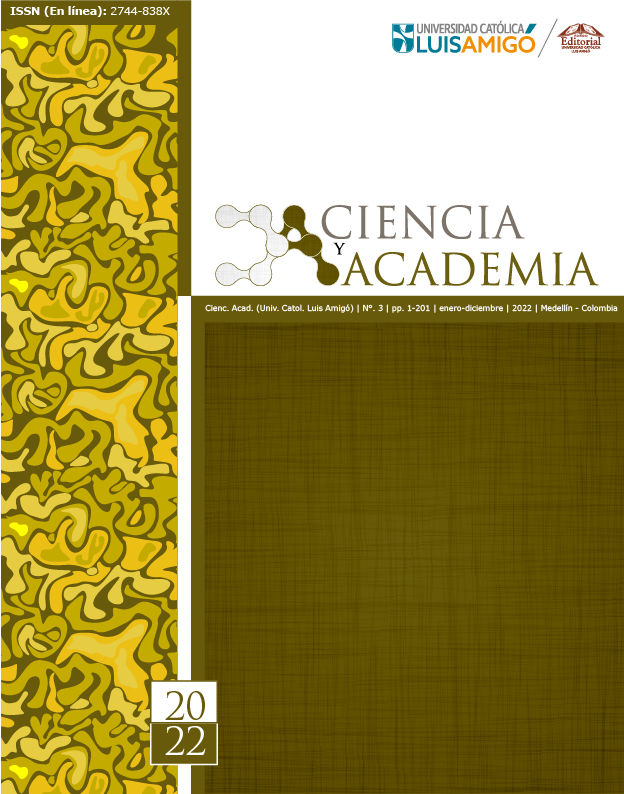Compassionate care from the SICO research seminars
DOI:
https://doi.org/10.21501/2744838X.4485Abstract
Groups that require care, such as the elderly and people with disabilities, represent a significant number in society. His care has been affected due to the family transformations that have arisen in recent years. As a society, solutions must be sought to prepare participants during their training and are aware of caring for those who need it. That is why there is the problem and the need to raise awareness and encourage, from childhood, caring for the other in a compassionate way. The school is one of the agents of socialization of the human being, in order that it offers the formation of prosocial behaviors that help to develop skills at an early age that can contribute to care, thus complementing what is learned at home. In this way, educational institutions and schools would not only educate in knowledge, but also in being and thus, in the formation of citizens capable of living together and recognizing the other from their well-being and dignity.
Downloads
References
Departamento Administrativo Nacional de Estadística. (2018). Censo nacional de población y vivienda 2018 Colombia. https://www.dane.gov.co/index.php/estadisticas-por-tema/demografia-y-poblacion/censo-nacional-de-poblacion-y-vivenda-2018
Filipe Marote, A., Pinto, C. A., da Rocha Vieira, M., Barbiéri-Figueiredo, M., & Nunes Pedrosa, P. M. (2012). Niños como cuidadores: revisión integrativa. Revista Latino-Americana de Enfermagem, 20(6), 1-11. https://doi.org/10.1590/S0104-11692012000600023
Franco Vélez, M. (noviembre 2017). Ciudades más compasivas. Bienestar Colsanitas, (154). https://bienestarcolsanitas.com/articulo/ciudades-mas-compasivas/ciudades-mas-compasivas/
Mosquera Pulido, A. (2018). La compasión, un componente de humanización en la propuesta emergente del desarrollo humano [Tesis de Maestría, Universidad Externado de Colombia]. https://bdigital.uexternado.edu.co/handle/001/1306
New Health Foundation [NHF]. (s. f.). Ciudades compasivas. https://www.newhealthfoundation.org/comunidades-compasivas/
Sancho, M., Del Barrio, E., Prieto, D., Díaz-Veiga, P., & Yanguas, J. (2016). Cuidar como nos gustaría ser cuidados. Obra Social “la Caixa”. https://fundacionlacaixa.org/documents/10280/566144/carta_primero_las_personas_es.pdf/c61be0b7-4139-465e-8f07-941574d0a2ac
Valgañon, M., Muñoz, L., & Briccola, M. (2014). La reiterancia de la conducta delictiva en adolescentes y su relación con las representaciones sociales acerca del rol ejercido por las madres. Salud & Sociedad, 5(1), 66-79. https://doi.org/10.22199/S07187475.2014.0001.00004
Published
How to Cite
Issue
Section
License
Copyright (c) 2022 Ciencia y Academia

This work is licensed under a Creative Commons Attribution-NoDerivatives 4.0 International License.
La revista y los textos individuales que en esta se divulgan están protegidos por las leyes de copyright y por los términos y condiciones de la Licencia Creative Commons Atribución-No Comercial- 4.0 Internacional. Permisos que vayan más allá de lo cubierto por esta licencia pueden encontrarse en http://www.funlam.edu.co/modules/fondoeditorial/






